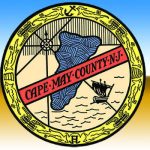TUCKAHOE – Ruling against an appeal brought by plaintiff Robert H. Breunig of Tuckahoe, the Appellate Division of New Jersey Superior Court upheld a lower court decision that affirmed the legality of Upper Township’s granting of use and bulk variances, design waivers and site plan approval to T&R Holdings, LLC.
T&R is the owner of property on Meadowview Lane in Upper Township, having purchased the property in 2008. The property is bordered by the Tuckahoe River to the north, Route 50 to the west, Meadowview Lane to the south and plaintiff Breunig’s property to the east.
The property is located in Upper Township’s Tuckahoe River Zone where the minimum lot size is two acres and the only use permitted is for single-family homes. The property is also situated in a designated area known as a “Wild and Scenic Waters Area.”
T&R’s property had been used as a marina since the 1930s along with existing dwelling units, which all at the time of this litigation had fallen into severe disrepair. In June 2009 T&R submitted to the Upper Township Zoning Board an application for a use variance, bulk variances, design waivers and site plan approvals to enable the company to construct a 10-slip marina, three residential units and certain improvements.
After multiple hearings, the board approved T&R’s application in June 2012. Breunig appealed this approval, arguing that the board’s decision to grant use and bulk variance relief was “arbitrary, capricious and unreasonable” and the matter went to trial.
The Appellate Division denied Breunig’s appeal citing numerous case law that “the role of a court in reviewing a local board’s land use decision is very narrowly circumscribed.”
The court further explained that it must give substantial deference to land use decisions because of the knowledge of local board members regarding local conditions and interests. Ultimately, the court said, the local board is best equipped to determine the merits of variance applications and “a board’s action is presumed valid, and the challenger has the burden to prove otherwise.”
Referring to the plaintiff’s argument that the board’s decision was arbitrary, unreasonable or capricious, the court said that only when one of those conditions is present will it intervene in a local board’s decision. However, the plaintiff must meet the burden of proof in showing that there was substantial detriment to the public in granting this variance.
In this case, the court noted that the board determined that T&R’s development plan was a substantial benefit to the public in terms of aesthetics, promotion of public health, safety and general welfare as well as supporting the state’s policy of providing public access to waterways.
Additionally, the board had noted that T&R proposed to renovate much of the dilapidated structure on the same footprint, and raise the structure above the base-flood elevation.
Similarly, the court upheld the board’s approval of variances for T&R, agreeing with the board that the property is “unique” since it is constrained by exceptional conditions because of its location along the Tuckahoe River and that there is no additional land to purchase to locate the marina and residential units.
These variances included for lot area, lot depth, front yard setback, side yard setbacks, rear yard setback, building coverage, landscape buffer, lack of curbing in a parking lot and a non-asphalt parking area.
Overall, the board had found that T&R’s plan promotes the purpose of providing sufficient space in appropriate locations for a variety of residential, recreational and commercial uses as well as the conservation of resources. Accordingly, the Appellate Division found that Breunig had not met his burden of proof in challenging these findings by the zoning board.
To contact Camille Sailer, email csailer@cmcherald.com.








